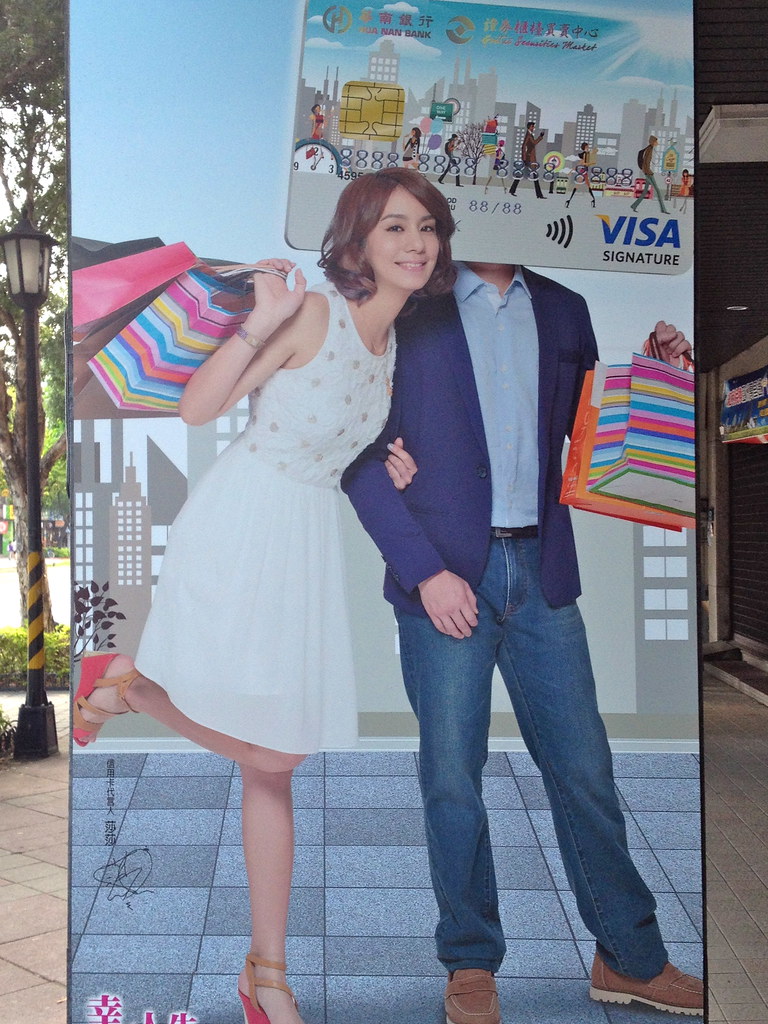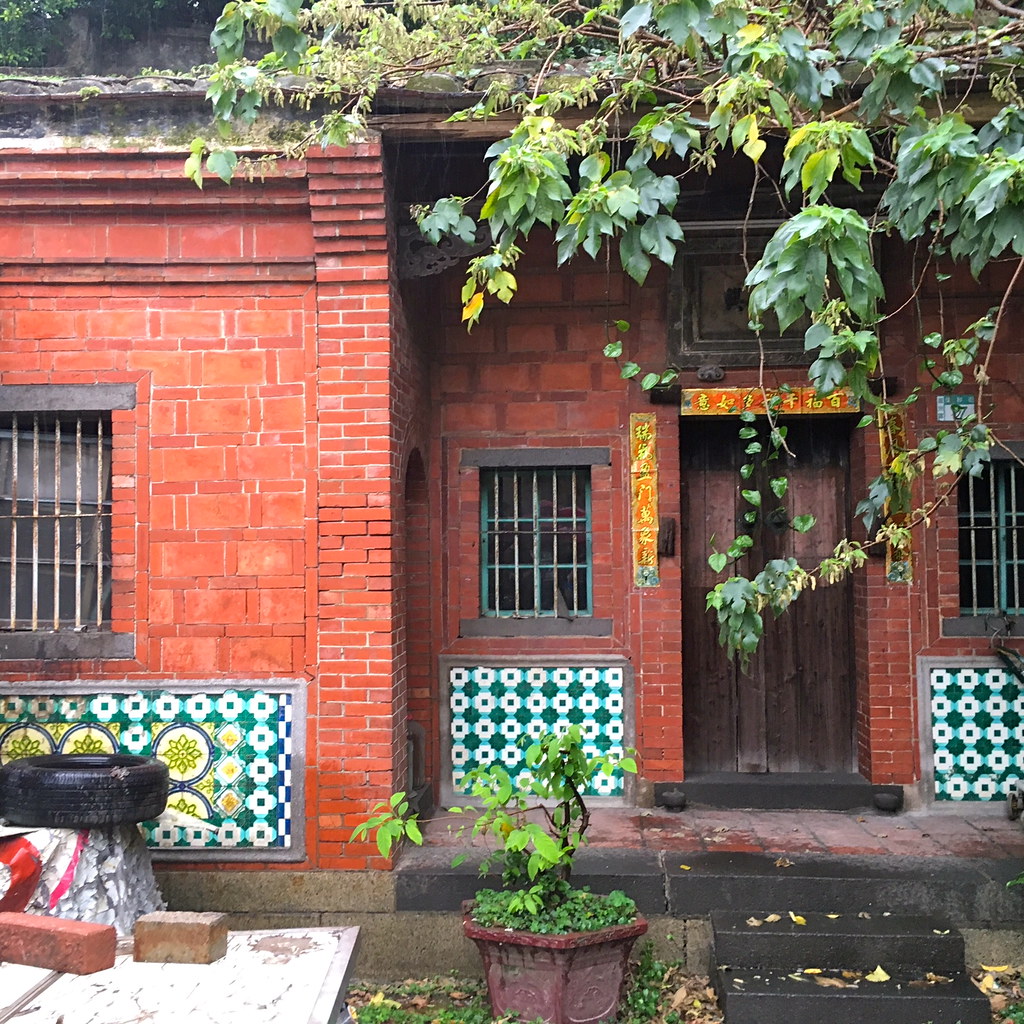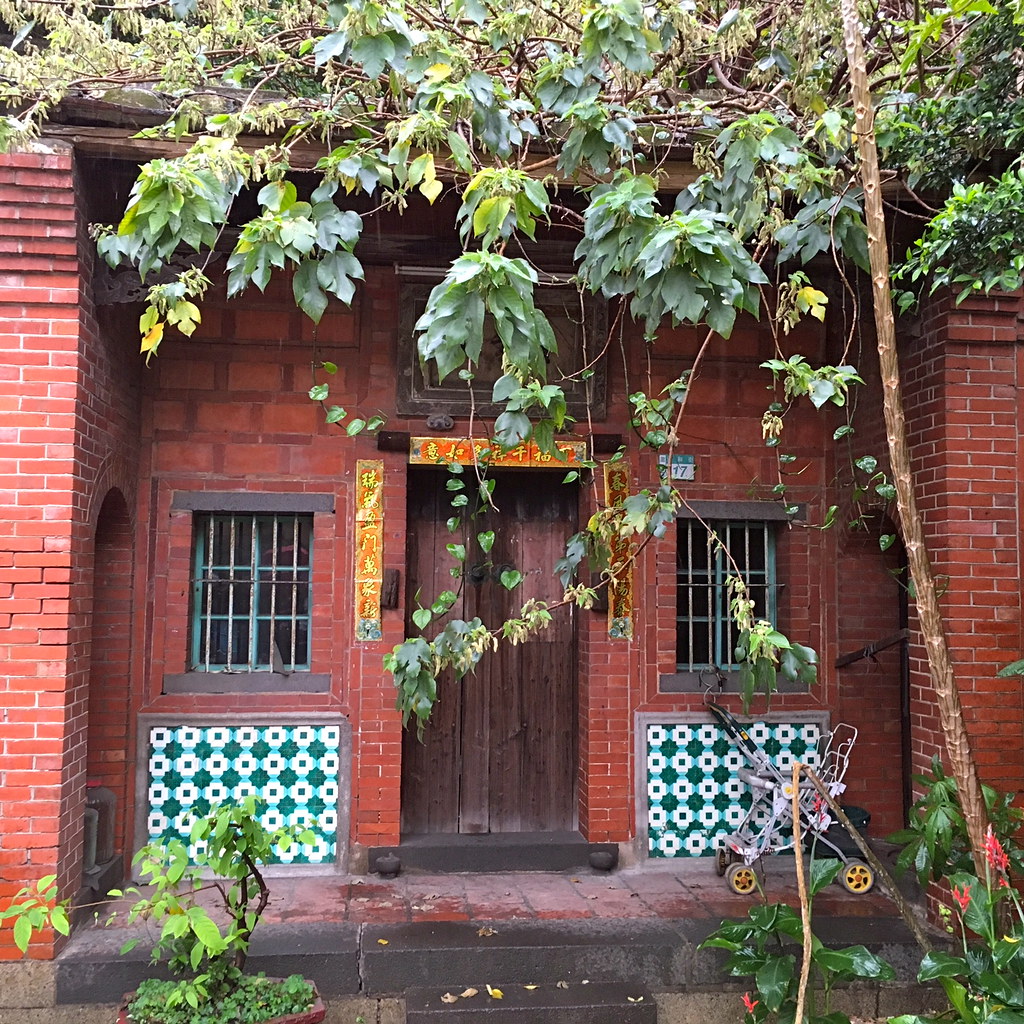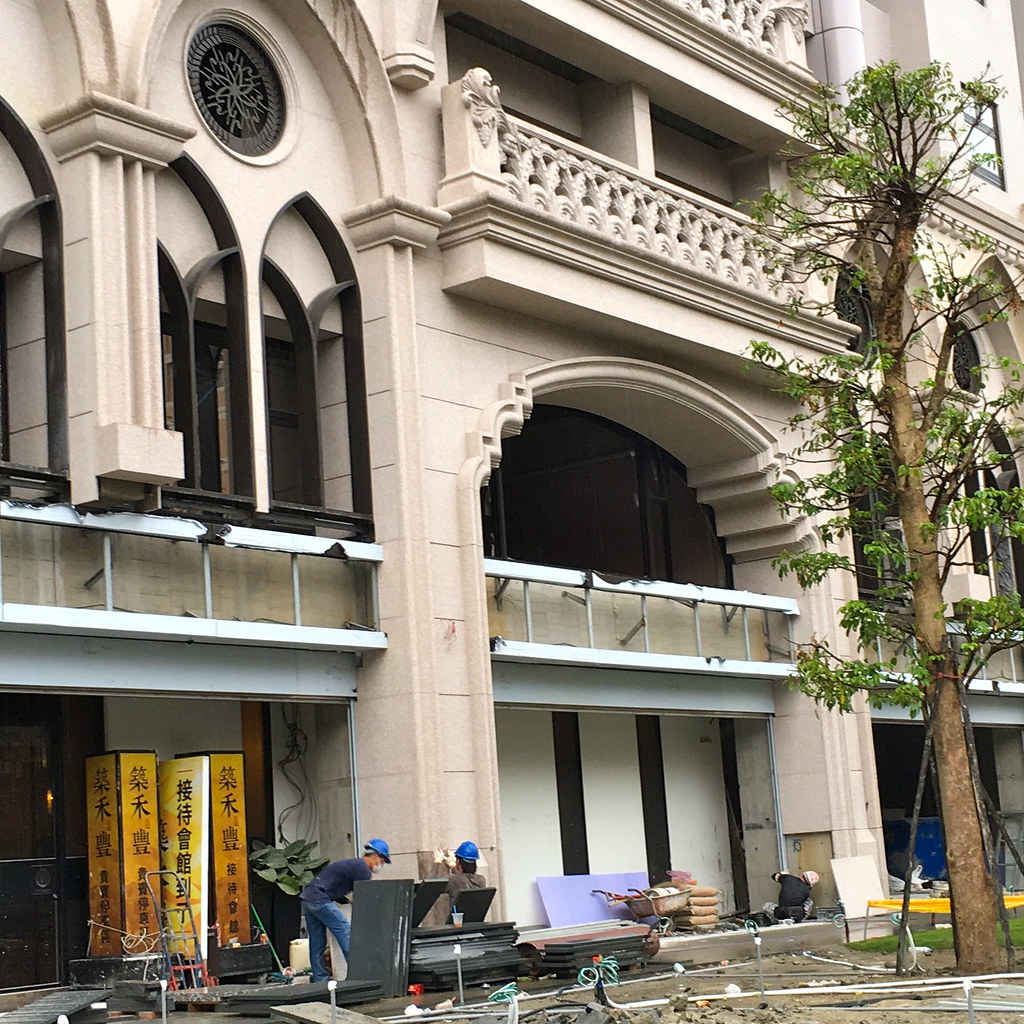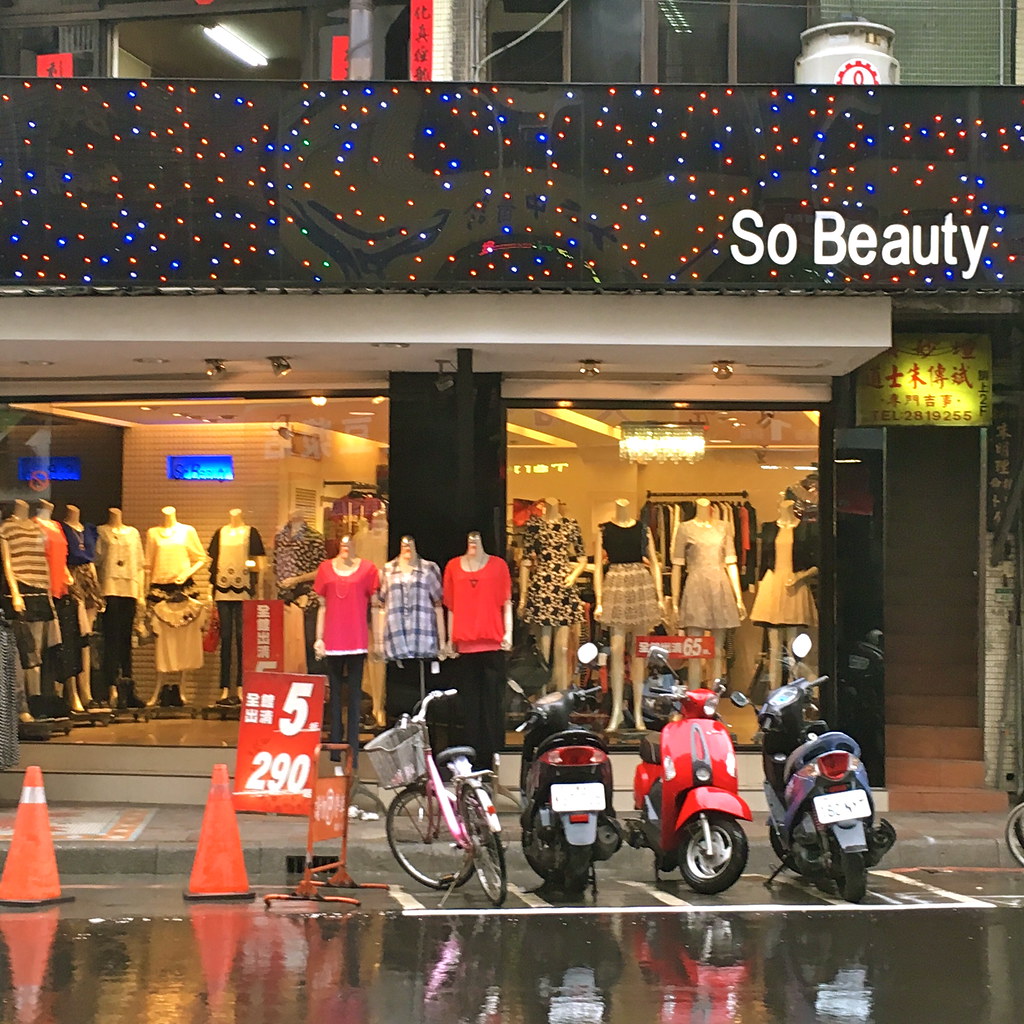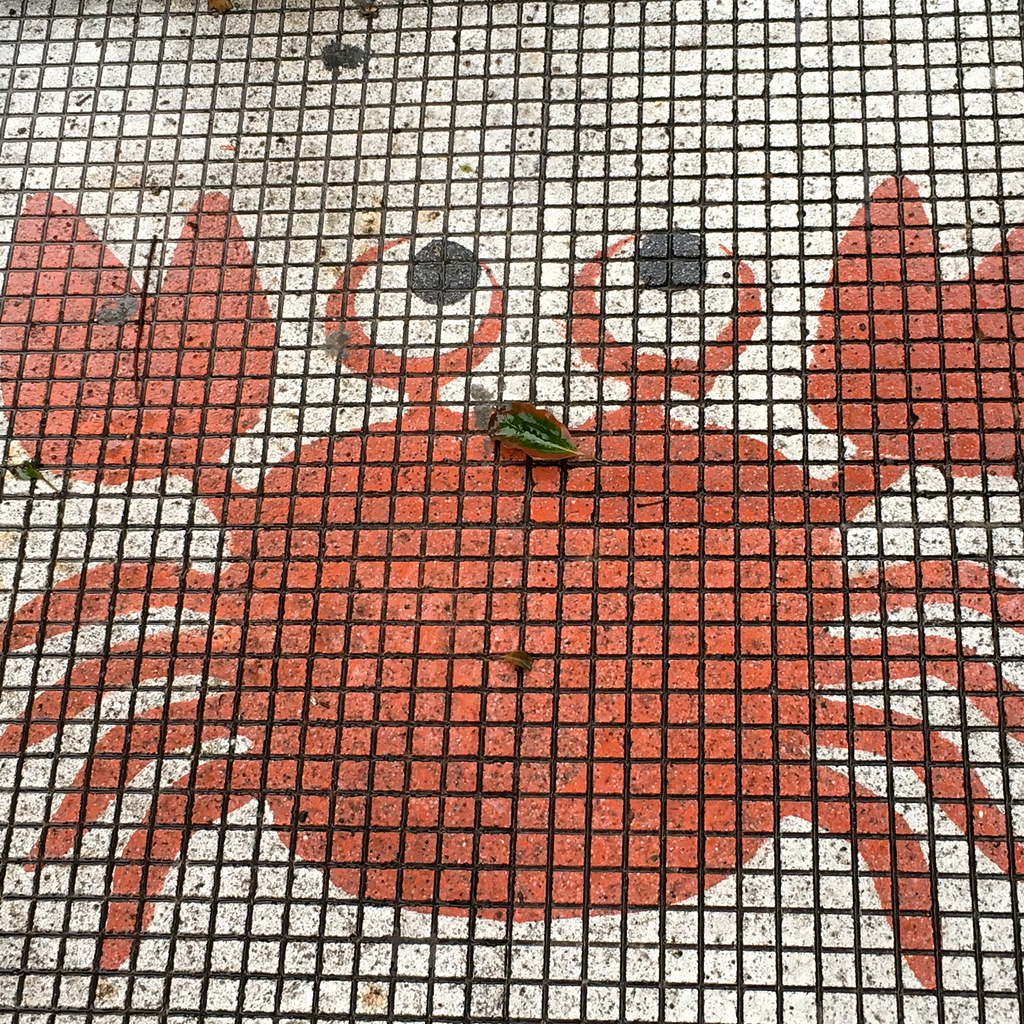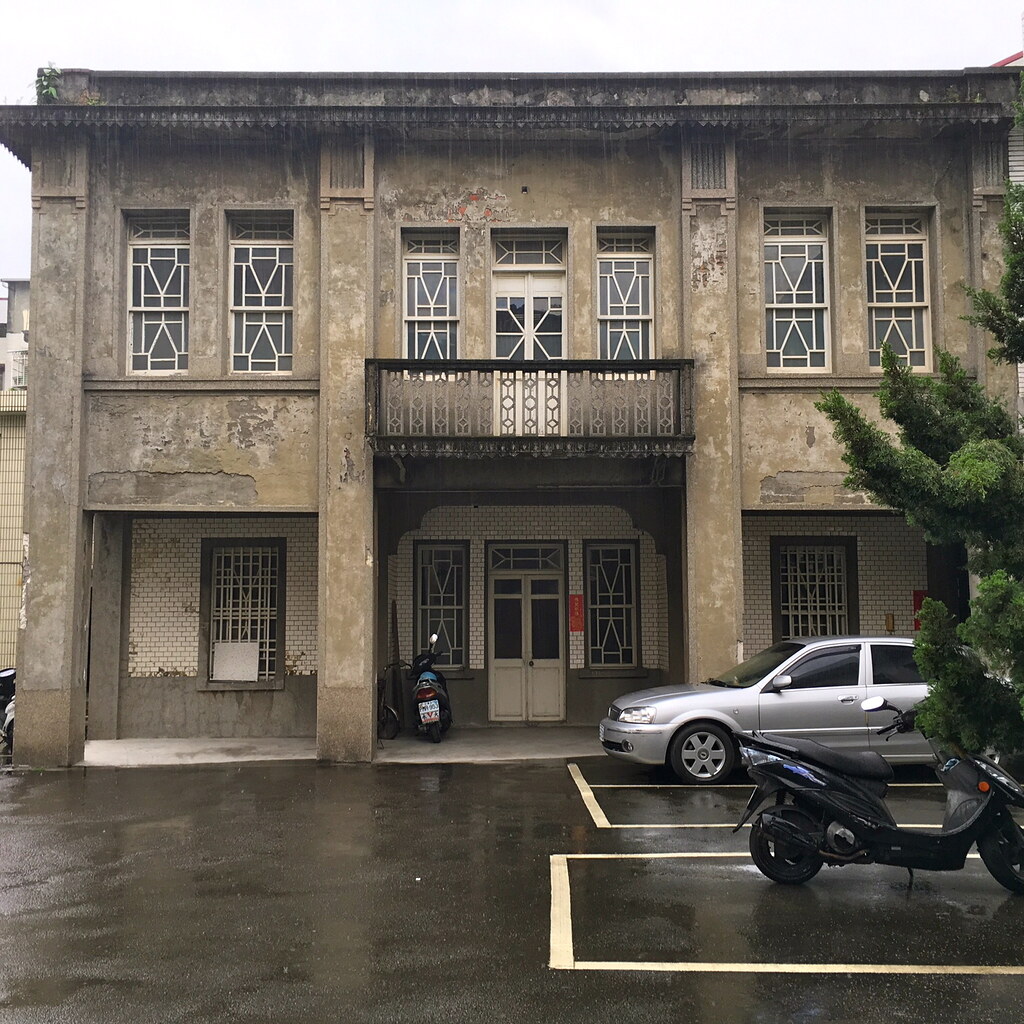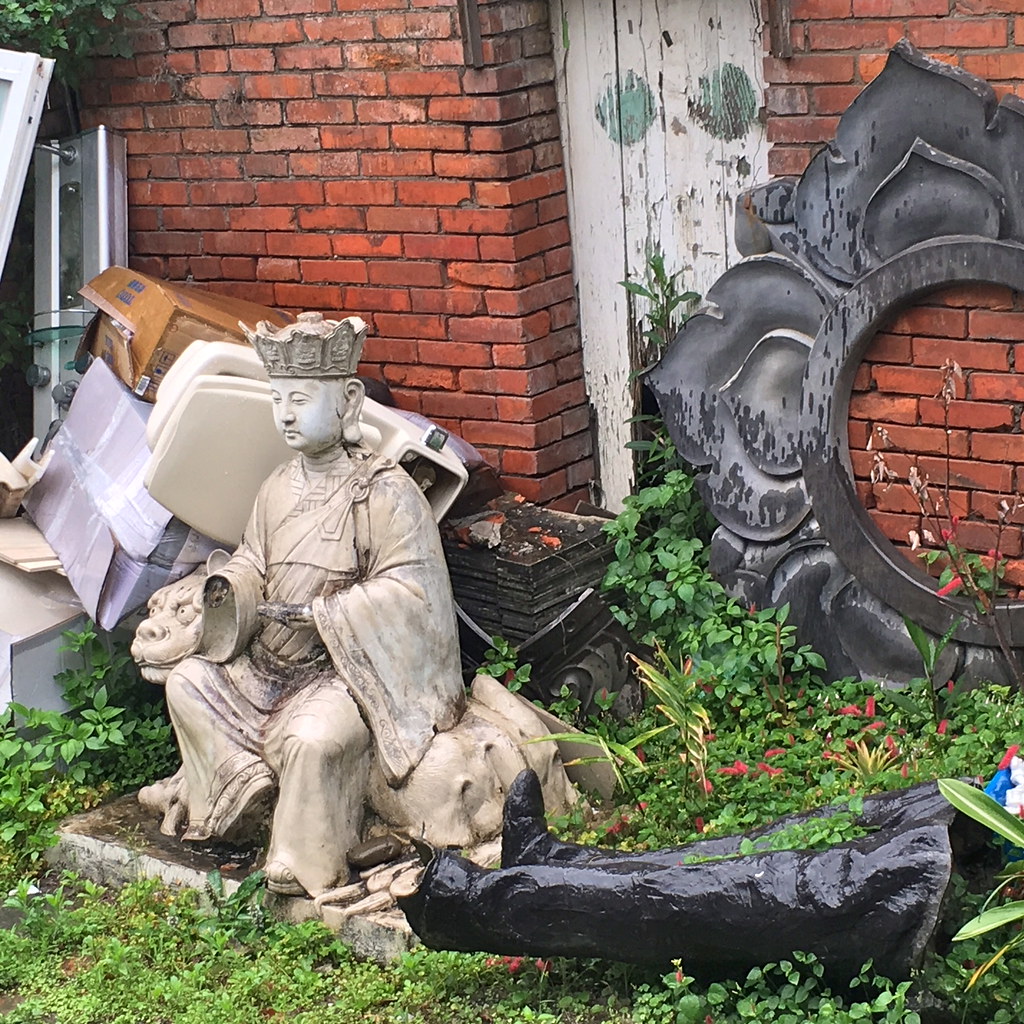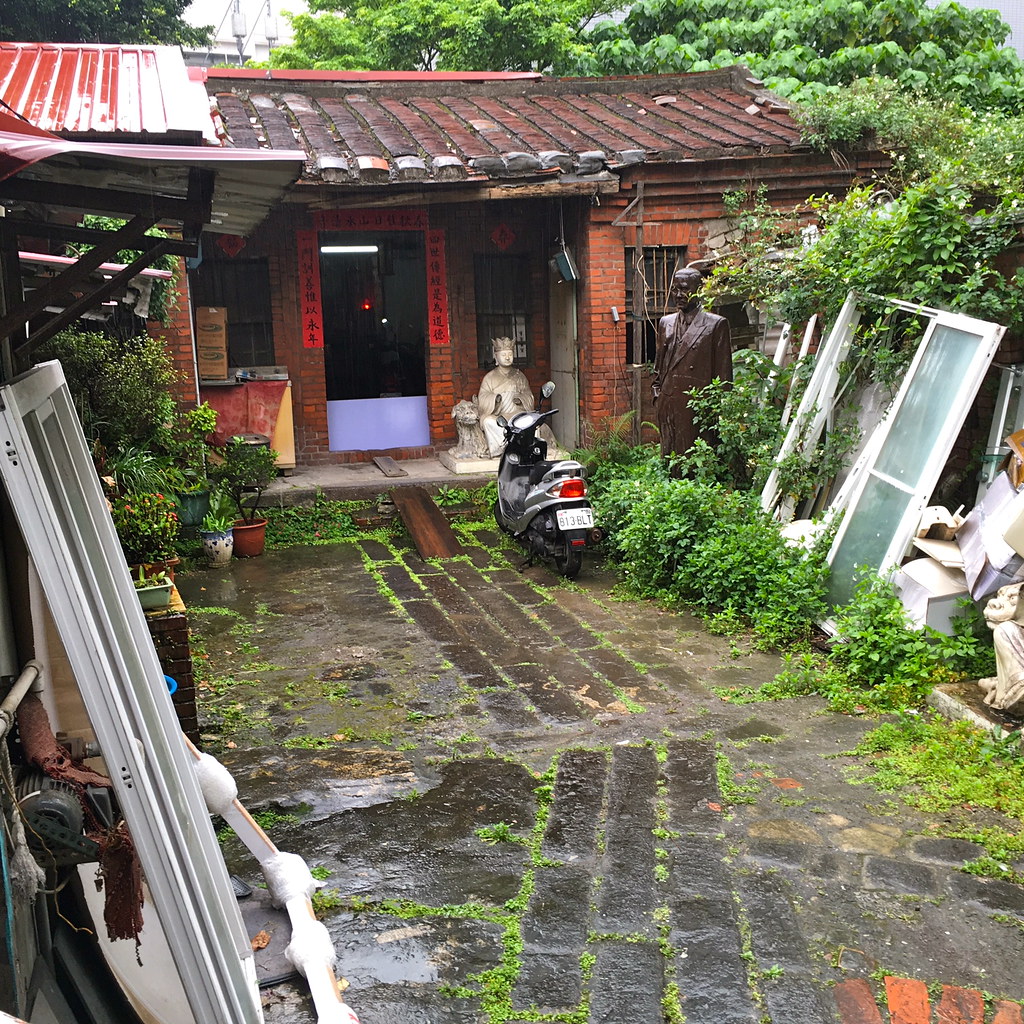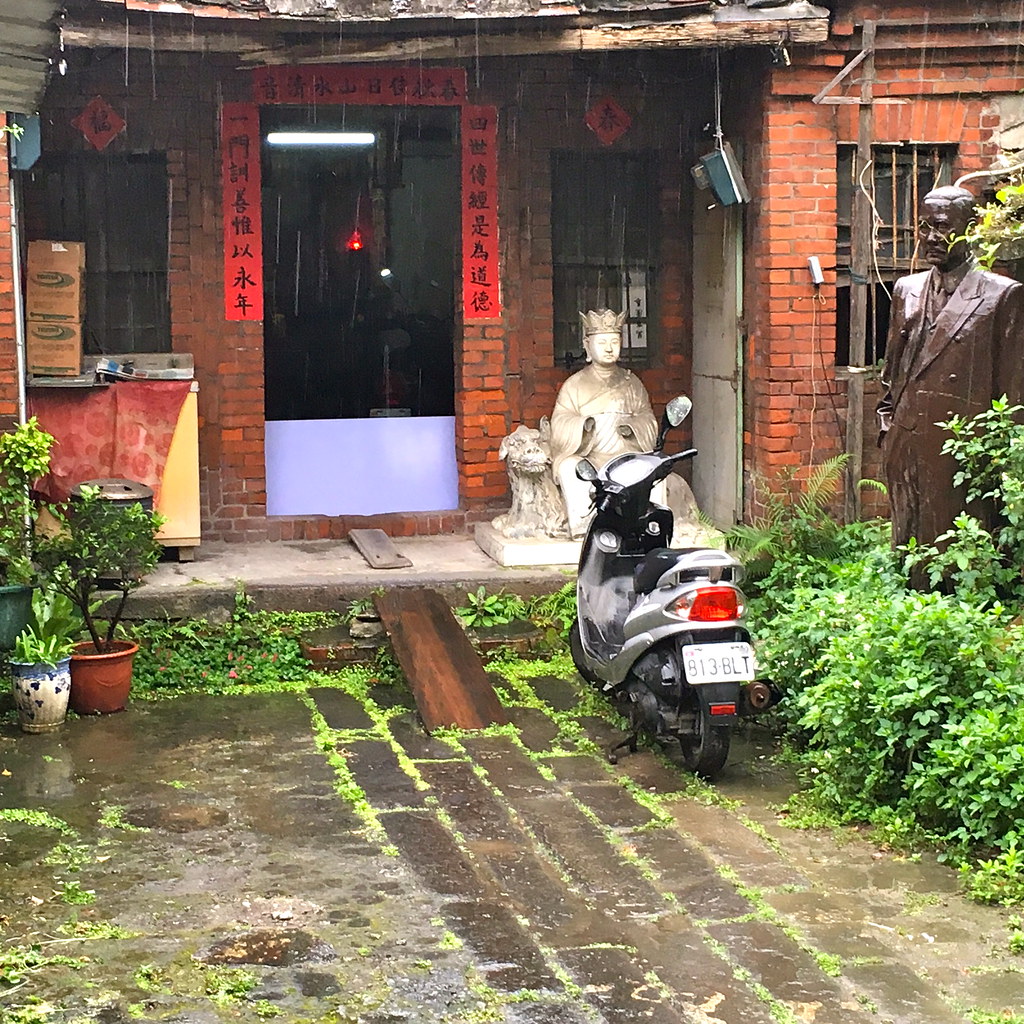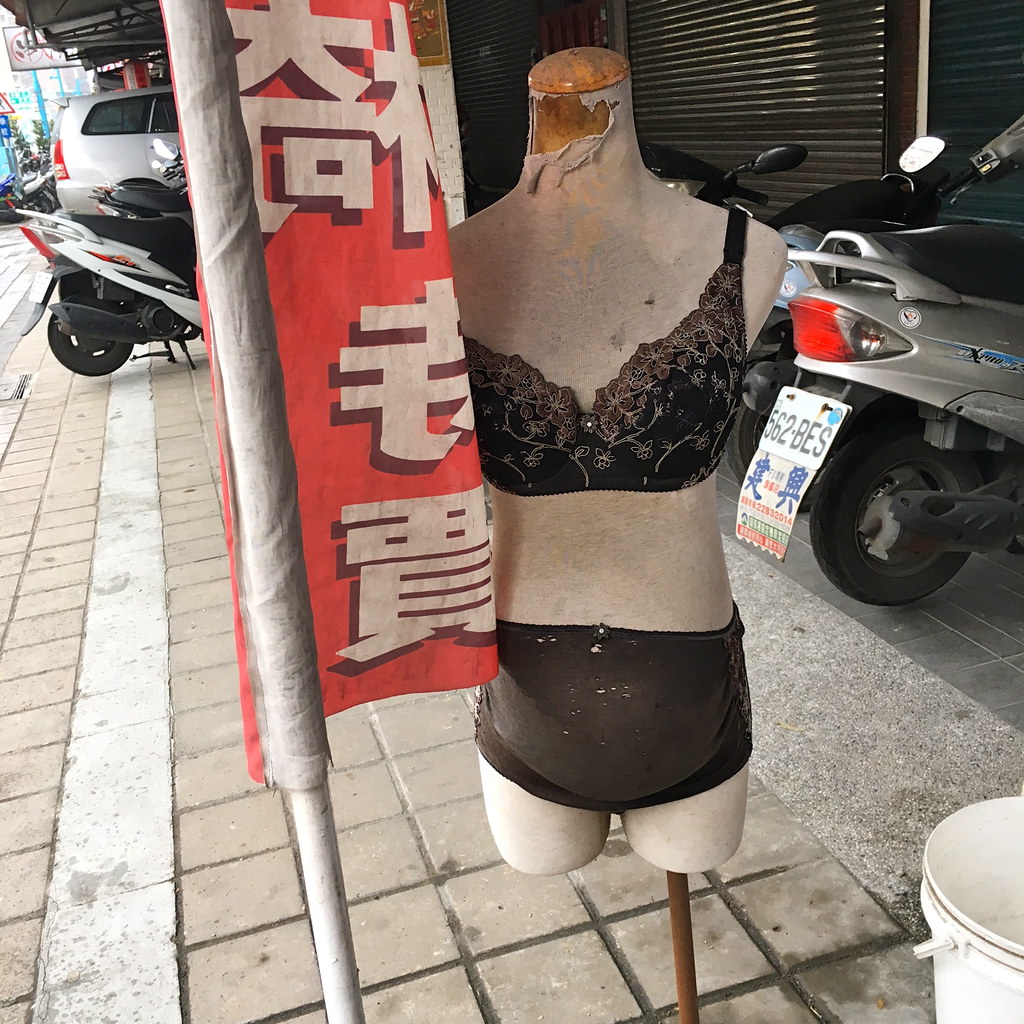So I was
reading this article linked to by a friend on what's wrong with Taiwan and its approach to the business in the post-industrial era.
And I have to say, I didn't care for it. I didn't absolutely hate it, but it missed the mark in a few key ways.
First, I'll give Stocker points for referring to Taiwan as a 'nation' and 'country' and not using the old 'island' cop-out that so many pussyfooting writers do. Thank you for that. More people should be so brave as to speak truth to power or just, I dunno, use language to describe a situation realistically. I don't know why that's so hard for so many writers, publications and weak-willed editors. All it takes is a backbone and some damn principles. And realistically,
Taiwan is a country. It is a nation. It is also an island, but using that as the de facto descriptor is devaluing and belittling. I have trouble taking journalists writing on Taiwan seriously who do this, so much credit to Stocker for not doing so.
And he's right to criticize the ODM mindset that lower costs and ramped-up production based on what other people are ordering, absolutely. ODM itself is not the problem, the issue is that Taiwan can't compete on price. It just can't. That's not going to change. It's time to find something new.
In his words:
Taiwan’s four decades of economic development were built largely on a single business model: winning export orders by delivering a quality product at a lower price (aka CP Value). Despite the increasingly uncompetitive nature of this business model, and in spite of sales of millions of copies of books like Blue Ocean Strategy and Value Proposition Model, Taiwan has failed to break its reliance on the CP Value model; not much unlike a college student who continues to rely on mom and dad for money after graduation.
I can't honestly disagree with that.
He's not wrong, either, to criticize the educational system, which sees fantastic scholastic achievement but mostly in the realm of test scores, and even then, much of it is the result of the private after-school cram school industry:
The business environment as far as I can tell is a reflection of the classroom. People are trained into this way of thinking/acting over 16 years, and when the company they join reinforces this mode of operation, people just default to what they are used to.
“When each individual is taking his/her own test, you aren’t going to build a very innovative culture. No experimentation. No exploration. No observation. No conversation. No debate.
Sure, but I'm not sure that's the biggest reason for business problems in Taiwan.
I used to defend Taiwan's educational system more vociferously, but I've grown more disillusioned with it the more I learn about it. I will not, however, go as far as some commentators do and say it teaches Taiwanese kids to become drones incapable of critical thought. No, it doesn't do that any more than the American public school system, which is still very much in an Industrial Age mindset, does. And anyway, it's not like Taiwanese don't learn to become critical thinkers - they do, just not from school. They learn it from their families, their friends, from life.
Just like most other people in the world, including Americans. I was lucky to have a few decent teachers who really were dedicated to teaching us to think, but honestly, I could have gotten through school fairly easily simply memorizing what I needed to know and regurgitating it. Often, I did, and did my real learning in other ways (such as through my parents' extensive library). So, I don't think American public schools were any better at teaching me critical thinking than Taiwanese schools are at teaching it to Taiwanese kids, so please lay off on that stupid stereotype. We are not any better. That's not to say the Taiwanese system is great, just that our pot is pretty black too.
What can I say - one of our most famous folk songs includes the lyrics
"20 years of schoolin' and they put you on the day shift"!
The same is true looking at testing culture: the West (at least, the US) is getting worse in this regard, not better. If anything, the Asian model should have shown that testing culture doesn't work. Taiwanese schools are more focused on bigger tests (such as the college entrance exam) than the US, though, and that is a problem. Most tests are not reliable and many have deep validity issues.
My one other true criticism is that teachers who study education in Asia, in many cases, don't actually learn to teach. They learn their subject matter well but don't go much into pedagogy, curriculum development, methodology or approaches.
Hell, if the education system were really to blame, Korea and Japan would be stagnating too in terms of brand reach. Both have education systems not that different from Taiwan's. Japan has its own economic turmoil but nobody doubts its international branding, and Korea just seems to keep climbing the ladder, outshining its old Asian Tiger rival, Taiwan in economic growth and global visibility. China, too! China is a bit of a rollercoaster economically, but people are touting it as the next great superpower, and it is already a global economic powerhouse. China's educational system is, if anything, far more repressive than Taiwan's.
So no, there is plenty to criticize about education in Taiwan but it is simply not the reason why business and international brand reach in Taiwan have been stagnating.
As for "no conversation, no debate", has Stocker walked down the street in Taipei on any given day to hear people sitting around outside their homes or the stores of their friends/neighbors debating issues of the day? Has he hung out in cafes overhearing student groups meeting to talk about politics and the way forward for the country? I have. In fact, I feel like I come across this more often in Taiwan than in the US, where "public discourse" seems to now mean throwing insults at each other over Facebook and saying stuff like "it's people like you who..." and "you [insert pejorative catchphrase here] make me sick" and "typical neocon/fundie/liberal/SJW crybaby". (To be fair, I argue with people on Facebook too, but I never stoop to that. It shows a lack of ability to support one's views with evidence).
People do converse, and they do debate. They experiment, too. Have I ever told you about my student who - as a child - would throw cats to determine their mass and velocity and tie firecrackers to lizards' tails to see what would happen? I mean, that's animal abuse and it's wrong, but you can't say he didn't experiment.
As for "Confucian values":
This leads to one of the big three challenges facing Taiwanese business as he sees it: Confucian values.
Says Stocker: “Unfortunately, too many Taiwanese are afraid to tell their boss what is going on and what should be done. Taiwanese employees don’t feel they have the right to make decisions, and for this reason they refrain from communicating (anything) with their superiors. There is no debate, there is no challenging of the status quo; there are no crazy ideas. The boss has to do all the talking, and over time since he/she is doing all the talking, he/she starts to do all the thinking as well. We end up with these incredibly flat organizations, with a boss on one layer and all employees on a second layer. Employees wait for the directive from the boss, and ignore anything coming laterally from co-workers. They also won’t collaborate with other employees to find an idea to work on, because the only relationship they need to attend to is that with the boss. It is very hard to be innovative when the only interaction is boss-to-employee in a downward direction.”
I mean, yes, I do often see a 'keep your head down, do as you're told, don't rock the boat' mentality in businesses in Taiwan. He's not wrong on the results, just on the reasons behind them.
Perhaps I'm just sick of the stereotypical invocation of "Confucian society" as a Western rejoinder to every issue they see in Taiwan. Don't like something or find it different from your own culture? Assume it's worse, and blame Confucius! It's so easy! Certainly all you have to do is go to an expat bar in Taipei to hear it. And I'm sick of it.
Because again, if that were really the problem, then how come the issues uniquely affecting Taiwan are not affecting Japan, Korea, Singapore, Hong Kong or China, or at least not to the same degree? They are all "Confucian societies" too, and again, while they have their own economic woes, they're not facing economic stagnation in quite the same way or for quite the same reasons as Taiwan is.
That's not even getting into how what Stocker describes as "Confucian values" are not actually very Confucian at all. Confucius cared about hierarchy and the chain of command, yes, but he also admonished those at the top to listen to their underlings and treat them fairly.
So clearly, "Confucian values" are not the reason.
What do I think are the main reasons?
Because what I think is important, at least on this blog?
They are wage stagnation, exhausting work culture, brain drain (a direct result of the first two) and China.
So here we go:
1.)
Wage stagnation
Stocker almost gets it, here:
To the converse, if you as an individual do come across a good idea, you are going to keep it to yourself, and when the timing is right you will ‘start your own company’.
Do you, Mr. Boss Man (because you are probably a man, maybe you even have a top had and monocle or just secretly wish you did), want to know why your employees aren't sharing their great ideas with you?
Do you think it's because of "Confucian values" and all you have to do is tell them to make more decisions, talk more to each other and be responsible for their own roles as they play into the success of the company? Is that why, Mr. Boss Man?
Let me speak for Mr. Boss Man: "Yes, that is why. I shall tell my employees to talk more and make more decisions when we have our next annual meeting."
To which I say,
no. That is not the reason.
The reason is that
you don't pay them enough to make it worth their while to tell you their great ideas.
I know this because I used to be someone's employee too. I used to have great ideas for how to improve our materials, our seminars, our support, our non-existent training. Years later, holding a Delta (meaning I'm now qualified to professionally assess the quality of my previous ideas), I still feel I had some great input.
I never bothered to share it with the company, though, because they didn't pay me enough to make sharing it worth it to me. I wouldn't see a pay bump, or a promotion. There wasn't a job to be promoted to. I would see precisely no benefit from sharing my thoughts with that company...why should I have given them my creative output for free, so they could profit and I could stay in the same place?
No, I kept my ideas to myself, created my own materials, syllabuses and teaching style and used it to build my own freelance business where I charge a rate commensurate with my abilities - a rate my former employer would never have paid me.
And that was the smartest thing to do.
I don't know anybody in Taiwan who would think "I have a great idea but I'm not going to tell the boss because she really cares about the chain of command and will see my speaking out as insubordinate."
No, every decent boss, "Confucian" devotion to hierarchy notwithstanding, knows a good idea when she hears it (there are plenty of bosses who aren't so decent, but let's assume enough of them get to be bosses by having some sort of talent) and if it is going to make her money, won't care where it came from.
More likely that worker thinks "I have a great idea but I'm going to keep it to myself because these people don't pay me enough to give a damn how successful their company is. It doesn't benefit me at all to help them make money while I continue to be underpaid and overworked, whereas I could stand to benefit a great deal from pursuing my idea on my own".
If you pay someone peanuts, they will give you monkey work. They may not actually be a monkey, but you will not be motivating them to talk to you with their most innovative ideas. Did anyone else read Neal Stephenson's
The Diamond Age, in which one of the protagonists invents the idea of advertisements on chopsticks through screens that can cycle through different images/ads? And he notes that that invention made his company billions, and all he got was his regular paycheck as always?
That's how it feels when you give your best at work, throw your crazy, wonderful ideas to the boss, and watch the company make scads of money while you are consistently underpaid. You might get promoted, but wages are so stagnant in Taiwan that not even that job is going to pay you what you are worth and what you might expect in literally every other developed country in Asia, if not the world.
Again. There is no incentive to do anything
but save your best idea for yourself when you know you will continue to be underpaid even if it takes off wildly after telling your boss.
And no amount of "tell your employees to collaborate and speak openly!" is going to change that, Mark.
Pay.
People.
More.
PERIOD.
Until companies do, they can expect more of the same. You can't just tell people to hand you their good ideas if you show them through their lousy paycheck that you don't value them. They're not going to, because they're not stupid.
Final note - if you beg the question in your article with an assumption that people in Taiwan don't think/experiment/debate/collaborate/innovate, and then go on to say they take their ideas and start their own companies, doesn't that contradict your first point? Doesn't striking out on your own with your own idea require a huge amount of chutzpah, experimentation, thought, collaboration and innovation?
If Taiwanese really were indoctrinated into being mindless drones who always listen to their boss in the hierarchy, they would be happy to drone on in their jobs. But they're not - they're starting their own companies. This is clear evidence that they aren't educated to just obey the system.
And I say good for them!
2.)
Exhausting work culture
I think this one speaks for itself - how are you going to come up with your best ideas and find creative new innovations, solutions to problems in the company and market, or come up with the next big thing, if you are constantly exhausted? If you are working 60, 70, 80 hours a week for less money than you'd be making in - again - every other developed country in Asia if not the world, constantly on the verge of nodding off, you just aren't going to be an asset.
In fact, studies show that more than 6-8 hours of work per day leads to decreased, not increased, productivity. And working people much more than that leads to a steep decline - you get literally no benefit, and in some cases you start to feel a deficit, in productivity from pushing your employees to work longer hours.
How can we fix this?
Simple - hire more people. Stop asking Ah-Chen to do the jobs of 3 people and then knowingly lie to him about it being possible to finish in a normal 8-hour day. A-Chen knows you're lying and you do too. (Again this may be a reason why he's not giving you his best ideas - you overwork him. You don't appreciate him so he doesn't appreciate you. What did you expect?)
Hire
3 people to do the jobs of 3 people (I mean for Christ's sake the math isn't even hard, come on guys) and pay them fairly, at internationally standard rates. Sure, this will cost you money, but you'll get it all back and more as your company roars to life.
Also, when you are expected to stay late as nothing more than a show of loyalty, or expected to do more than you can reasonably do in one work day, you tend to rebel, don't you? At least I do. Taiwanese employees don't sit on Facebook because they're lazy or unproductive. They're rebelling in the only way they can - by giving monkey work to employers who treat them like monkeys, regardless of how creative or innovative they actually are.
I don't blame them. I would too.
You want better work? More innovative staff? Start treating your employees like
people. Give one person the work of one person, not 2 or 3.
3.)
Brain Drain
This is a direct result of the first two problems. Again I don't blame those who leave - if office work in Taiwan were the option I was looking at if I stayed, I'd leave too. No thanks. Pay me what I'm worth and let me go home at 6, or I'll go abroad. Bye!
4.)
China
I won't spend too much time on this, but I do think it's a factor. What does every country not have to deal with that Taiwan does? China openly and actively trying to undermine its economy to make annexation easier. Few people seem willing to admit this, fewer still are willing to debate it.
It's obvious to anyone who cares to look - I mean hell, China admits it openly!
They can and do interfere with Taiwan's ability to negotiate economic agreements with other countries and are quite open about the reason being that a weakened Taiwan is a Taiwan that's easier for them to take over.
They are quite open as well that economic talks are, for them, an entry point to later political talks that they aim to "win".
This is not news.
China is actively trying to repress Taiwan's economy so as to render it both hopeless and economically dependent on China, for reasons that are obvious to everyone with two eyes and ears and a brain to process input with.
And that's why we can't seem to get the economy off the ground.
Why am I so sure it's these issues, and not the ones Stocker points to (real issues though they are) as the true mechanics behind Taiwan's economic stagnation?
Because they are the only ones unique to Taiwan. Wage stagnation is not a problem on the same level in South Korea, Japan or Singapore, and even China pays competitively now on the relatively prosperous urban east coast. (Hong Kong is another matter - wages are globally competitive but the cost of living has skyrocketed, especially vis-a-vis housing, to the point that it doesn't feel that way to locals). It's the same for the threat from China. Brain drain doesn't seem to be much of an issue for other competitive Asian economies - if anything they're the ones getting Taiwan's best and brightest.
Exhaustion at work is an issue common to other countries in Asia, and as such may not be the key driver, but I felt I should mention it because it is such a massive problem.
Want to fix whatever is holding Taiwan back?
Start here.
